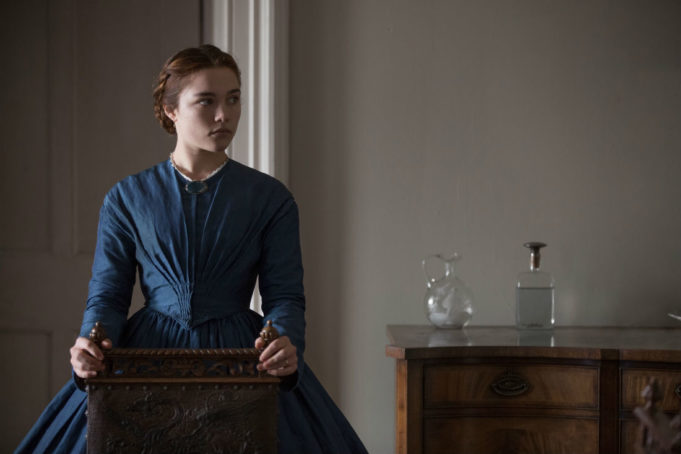One reason behind the Samuel L. Jackson-caused scrape this past spring over black British actors portraying African-Americans in American movies is that there’s not enough work for them in their own country. After all, where will you put black actors in a Jane Austen adaptation? Some recent British films — not enough, but notably Amma Asante’s Belle and Andrea Arnold’s interracial adaptation of Wuthering Heights — have sought to redress this by casting these actors in period dramas, to show that black people have been part of British history for centuries. The latest and best is Lady Macbeth, a concentrated 19th-century drama that will freeze your blood, should you see it at the Modern this weekend.
The story is not based on Shakespeare but rather on Nikolai Leskov’s 1865 novel Lady Macbeth of Mtsensk, which reads like a Russian version of Patricia Highsmith. (Classical music fans may remember that Shostakovich wrote an opera version of this story that landed him in deep trouble.) The movie shifts the setting to England, where Katherine (Florence Pugh) has just been married off to a wealthy manufacturer’s son (Paul Hilton). She now lives in a nice house, but it’s mired in a secluded and particularly muddy patch of the countryside. She’s bullied by her tyrannical old father-in-law (Christopher Fairbank), kept indoors ostensibly for the sake of her health, and left alone for long periods with nothing to do and no one to talk to. Her sex life with her new husband consists mostly of stripping naked and facing the wall while he sits in a corner of the room and masturbates. Small wonder, then, that she seeks comfort in hot sex with a handsome black groomsman named Sebastian (Cosmo Jarvis). The affair can’t become public, so she resorts to killing people around her to keep it secret, all the while nursing a hopeless desire to install Sebastian as the man of the house.
Director William Oldroyd is making his film debut (coming from theater and opera), while this is only the second film credit for Pugh. No matter; Pugh sets the screen ablaze as this frustrated and incredibly bored lady who pivots to murder with effortless logic. Like the heroine described by Leskov, she’s neither thin nor tall nor pretty, and she may have only been a teenager when the film was shot, but she radiates stony authority like an actress three times her age. The latter is especially true in a late scene when someone suddenly incriminates her in front of police, and you can see her wheels turning as she struggles to come up with a way out.
As for Oldroyd, he gives this thing the drive and power that Sofia Coppola’s similar The Beguiled lacked. The harsh, flat lighting keeps the mansion setting from looking too good, and there’s no background music. While his rhythm in the early going helps capture Katherine’s insane boredom as a society wife, later on he turns unflinching as he depicts the murders. We may feel a grim satisfaction when she locks that miserable father-in-law in his library until he dies, but there’s no such feeling at the movie’s climax, when Katherine and Sebastian murder a child who stands in the way of their romance. The scene, shot in one take and composed so that we hear the boy’s muffled screams but don’t see him, is exactly as horrible as it needs to be.
The injection of race into this story gives the movie a power that Leskov’s novel doesn’t have. Oppressed though she is, Katherine still enjoys the privileges of her race and rank, and she knows instinctively that the police are readier to believe a black man guilty of the crimes than a white woman. In that regard, this vision of 19th-century England doesn’t look so far removed from our world, which is one reason why Lady Macbeth, under its Victorian petticoats, cuts savagely close to the bone.
Lady Macbeth
Starring Florence Pugh and Cosmo Jarvis. Directed by William Oldroyd. Written by Alice Birch, based on Nikolai Leskov’s novel. Rated R.












